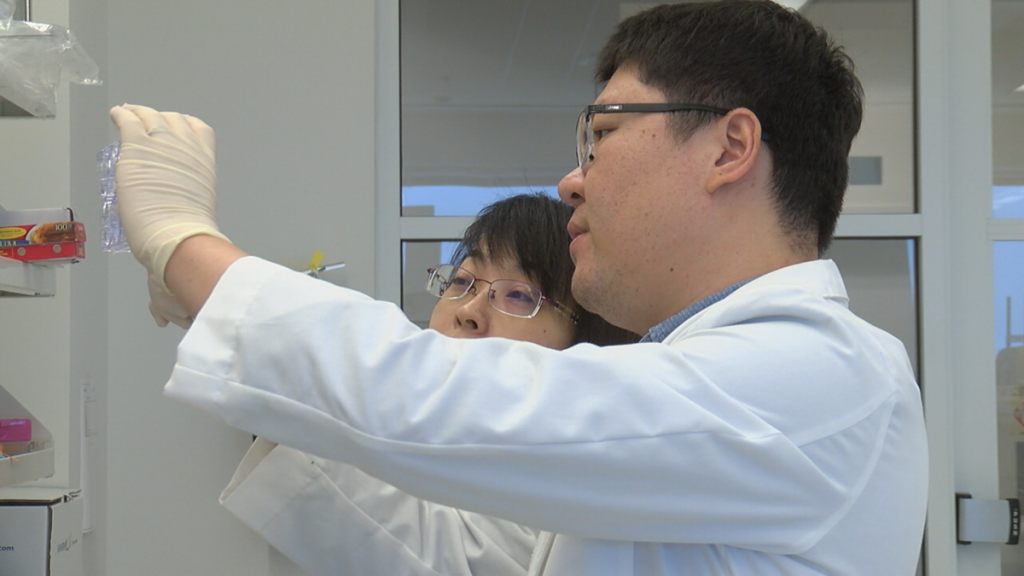Huntsville, Ala. – An international team of researchers, including Devin Absher, Ph.D., of the HudsonAlpha Institute for Biotechnology, have found a correlation between the age-related loss of the Y chromosome in blood cells and shorter life span in men.
The findings were published this month in the journal Nature Genetics.
Led by Uppsala University in Sweden, the international team of researchers analyzed the DNA in blood samples from more than 1,600 elderly men. They found that the most common genetic alteration was a loss of the Y chromosome in a proportion of the white blood cells.
Absher’s lab at HudsonAlpha conducted a detailed molecular analysis of the patient samples to identify the somatic changes in chromosome number that lead to the discovery of the Y chromosome effect.
The Y chromosome is only present in men, and the genes contained on the Y chromosome have so far mostly been associated with sex determination and sperm production.
The Y chromosome was previously thought to carry very little genetic information. However, the results of this study indicate that the Y chromosome has a role in tumor suppression and might explain why men get cancer more often than women.
While the study has not revealed the exact reason for the loss of the Y chromosome in some cells, it does suggest a process that impacts aging, Absher said. Every time a cell divides it can give rise to mutations, but most of the time the mutations are in single bases in the genome, rather than complete chromosome loss. The loss of the Y chromosome has been detected in immune cells, but it’s not clear if the loss is occurring also in other tissues or if the loss is specific to the immune system.
The results of this study indicate that major somatic mutations, like losing part or all of a chromosome, certainly affect human health, and more studies need to be done to determine why certain somatic variants arise in the immune system and alter disease risk.
It’s possible that the loss of the Y chromosome could be used as a biomarker to predict future cancers or predict cancer risk. “The more we learn about somatic changes to the genome, the better we’ll be at making predictions about cancer risk,” Absher said.
Researchers collaborating on the study were HudsonAlpha, Uppsala University, Karolinska Institutet, the University of Southampton, the University of Oxford, and the Broad Institute.
About HudsonAlpha: HudsonAlpha Institute for Biotechnology is a non-profit institute dedicated to innovating in the field of genomic technology and sciences across a spectrum of biological problems. Its mission is three-fold: sparking scientific discoveries that can impact human health and well-being; fostering bio-tech entrepreneurship; and encouraging the creation of a genomics-literate workforce and society. The HudsonAlpha biotechnology campus consists of 152 acres nestled within Cummings Research Park, the nation’s second largest research park. Designed to be a hothouse of biotech economic development, HudsonAlpha’s state-of-the-art facilities co-locate scientific researchers with entrepreneurs and educators. The relationships formed on the HudsonAlpha campus allow serendipity to yield results in medicine and agriculture. Since opening in 2008, HudsonAlpha, under the leadership of Dr. Richard M. Myers, former director of the Stanford Human Genome Center, has built a name for itself in genetics and genomics research and biotech education, and boasts 26 biotech companies on campus.



